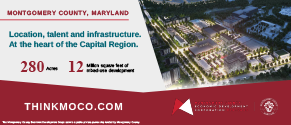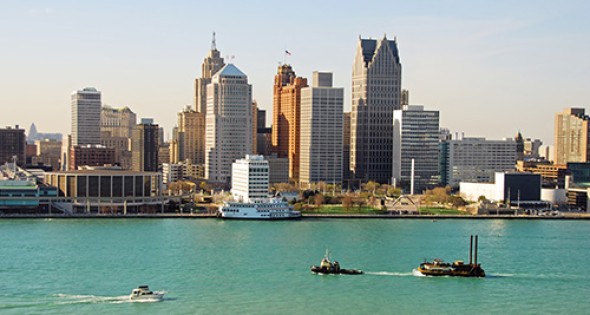
Michigan: Addressing Challenges for Continued Growth
22 Nov, 2016
By Lori Culpepper
According to the Michigan Economic Development Corporation (MEDC), Michigan’s business climate is stronger than ever. The majority of Michigan businesses that have been surveyed describe the state as having a positive business climate, and they would promote Michigan as a place to start a business. The state is ranked as a top 10 pro-business state and as a top 10 state for major new and expanded corporate facilities.
Michigan provides millions of dollars in support each year for business expansions and growth through its resources, incentives and loans. Entrepreneurs and startups also have access to business services and financial support through MEDC’s SmartZones and business incubators, each anchored by an academic institution.
Since fall of 2015, Michigan has dealt with the water crisis in Flint, which the Detroit Free Press reports will continue to be an issue at least through the end of 2016 as water filters will still be required. Gov. Rick Snyder has made funds and resources available to those in the city in need of them. While water quality has improved, Snyder says they need an infrastructure integrity study for pipes and connections, using outside, independent experts.
But he says that Michigan also has other statewide infrastructure challenges, as does much of the nation. There has been progress recently as the state made the largest investment in transportation funding over the last half century, according to Snyder. This will be used to fill potholes, rebuild roads and make bridges safer.
Progress has also been made in Detroit, Michigan’s largest city, which has recently emerged from bankruptcy. Snyder says it is now a hub for innovation and excitement with dynamic economic growth in the downtown and midtown areas.
Education is at the forefront of continued economic development in Detroit and other cities in the state. A commitment to education is making a difference in many ways, including job creation. Since December of 2010, more than 420,000 private sector jobs have been created, ranking Michigan sixth in the nation. Snyder says the state is No. 1 in the nation in manufacturing job growth. Community Ventures is a program that has employed more than 4,000 people by partnering with 110 companies.
To target rural communities throughout Michigan, a new program called Rising Tide involves reaching out to all ten regions of the state to identify challenged communities and present a team of resources. This collaborative effort between economic development resources, community development resources and talent development resources help those communities keep up with the growth of the rest of the state.
Historically, Michigan has been known as a leader in the automotive industry, and Snyder says that reputation continues to hold true. Michigan continues to set U.S. records for car sales, and more than 70 percent of the research and development for the U.S. auto industry takes place in Michigan. The state also builds the most cars in the nation.
But he adds that the industry is transforming into what may one day be called the “mobility industry,” that is not about what vehicle people travel in but how they travel. Snyder says the Michigan auto industry is already preparing for that future and investing in intelligent vehicles. This means autonomous, connected vehicles and how smart infrastructure communicates with vehicles. Several years ago, the state created a partnership with the University of Michigan and other partners called the Michigan Mobility Transformation Center to begin this research and development for the future of the industry.
Bay County
By Rachel Hamilton
Bay Future, Inc. is a 501 C3 public/private nonprofit organization in charge of economic development for Bay County, which is along the southwestern shore of Saginaw Bay. “We’re a county of 106,000 people, and Bay City is about 35,000 — a micropolitan community if you will,” says Mark Litten, president and CEO of Bay Future, Inc.
The General Motors Powertrain Facility in Bay County announced a $118 million expansion that will add 130 jobs to the 450 there now, according to Litten. “Those will be UAW [United Auto Workers] jobs, and are higher paying jobs.”
The area has also seen a $70 million expansion at F.P. Horak’s publishing/manufacturing side which is expected to add 71 jobs. Conti Group, Inc. is expanding, relocating a facility to Bay County and adding 50 new jobs, according to Litten.
“Agriculture is probably our largest industry,” Litten says. This is typical for central Michigan. Because Bay County has access to Interstate 75, it is targeting logistics as well. As Michigan’s access to fiber optic internet increases, IT and data centers are also a target cluster. “Another target would be advanced manufacturing with a sub-cluster of medical device manufacturing,” Litten says.
Dow Chemical, with operations nearby, is merging with DuPont, and Litten expects they will move up the Fortune 50 list. “A lot of other companies come here to support that wonderful company,” he says.
“Just west of us in Midland, the University of Michigan has a supply chain facility to help local companies in our region with supply chain management,” says Litten.
Bay Future is one of eight Great Lakes Bay Regional Alliance (GLBRA) communities. The GLBRA is advocating dredging the Saginaw River. “We have port facilities here,” Litten says. “They could be a lot busier if bigger boats could come in.”
Lansing
By Rachel Hamilton
Lansing is “an attractive place for businesses to relocate and start up, and a welcoming and diverse community,” says Tom Cross, director of cargo and global logistics development for the Capitol Region Airport Authority. “With just about any field anyone would want to bring, we can accommodate it and make them a welcome member of our community.”
Lansing has “rebounded greatly from the woes of 1990s and early 2000s,” Cross says. The Michigan Economic Development Corp., according to Cross, has been proactively working to bring companies in from out of state. “We’ve seen continuous development and growth from them.”
Dart Container, a manufacturer of food and drink containers, and Jackson National, a financial services company, are part of that long-term growth. So is General Motors.
The auto industry is a powerhouse in the area, says Cross, and because of it, the area has seen “a lot of warehousing taking off and being built” in support of that cluster, particularly GM and their Tier 1 suppliers.
Technology “is growing by leaps and bounds,” Cross says, attributing much of that growth to an accelerator at Michigan State — the Facility for Rare Isotope Beams. Niowave is already working to produce nuclear isotopes “and getting ready to start shipping those out into the world.”
Michigan State and Lansing Community College provide higher education in the area. The Capitol Area Manufacturers Council finds people who want to learn a trade skill and “gets them trained and put into the workforce,” Cross says.
The Capitol Region International Airport in Lansing is “the fourth busiest airport by cargo in the state,” Cross says. Port Lansing is a container freight station, not a water port; oceanic shipping containers from New York or Charleston are trucked directly to Lansing for deconsolidation in its foreign trade zone with a smaller, faster customs process.
Related Posts
-

Business Starts Here
-

TEXAS ENTERS 2021 AS WORLD’S 9TH LARGEST ECONOMY BY GDP
-

CALIFORNIA: 5TH LARGEST ECONOMY IN THE WORLD
-

MINNESOTA: FIRST IN FIVE-YEAR BUSINESS SURVIVAL RATE
-

CANADA: Alberta. More Open Than Ever
-
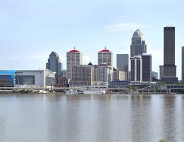
KENTUCKY: The Bluegrass State Is The Right Place To Grow Your Business
-

TENNESSEE: Great Brands Deserve the Great State of Tennessee
-
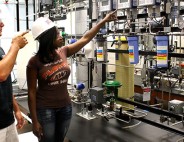
LOUISIANA: Custom Workforce for Expanding
-
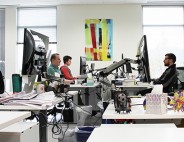
MARYLAND: Home of Innovators
-

MAINE: Yankee Ingenuity










